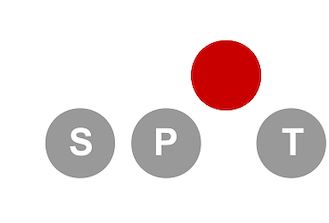International Journal of High Performance Computing,
Special Issue on “Evolutionary Algorithms on Parallel Architectures and Distributed Infrastructures”
Detailed information on how to submit available at:
http://absys.dacya.ucm.es/doku.php?id=hpca_info
Guest Editors
J.Ignacio Hidalgo
(Universidad Complutense de Madrid, Spain
Francisco Fernández
(Universidad de Extremadura, Spain)
A. The topic
Bio-Inspired metaheuristics are optimization and problem solvers
inspired by nature. During the last decades they had experimented a
great success and spreading. As a consequence more complex and
computationally costly problems have been tackled and new parallel and
distributed implementations of EA are necessary. In this way, parallel
architectures, distributed systems and Cloud and Grid Computing have
offered an interesting alternative to reduce computing times.
Evolutionary algorithms can also help to solve and optimize a set of
tasks required for obtaining a proper functioning of Parallel and
Distributed architectures. Genetic Algorithms (GAs), Genetic
Programming (GP), Ant Colonies Algorithms (ACOs), Estimation of
Distribution Algorithms (EDAs) or Simulated Annealing (SA) are
nowadays helping computer architects on the optimization of their
architectures.
There is a growing interest in running and exploring new implementations
of evolutionary computation on parallel and distributed
computing systems. This kind of infrastructures open new ways for
solving more complex problems. An emerging number of technologies that
enables large-scale resource sharing problem solving within
distributed, loosely coordinated groups sometimes termed “virtual
organizations” are now available for Evolutionary computation
practitioners.
The purpose of this special issue will be to provide a reference of the
state-of-the-art in the synergies arising from two different but
related fields: Parallel and Distributed Infrastructures and Evolutionary Computation.
Our objective is to present a collection of articles which:
(1) discuss the role which parallelism has played and is playing
nowadays in these algorithms;
(2) present papers dealing with the use of Parallel and Distributed
EA models when dealing with massively parallel infrastructures related problems,
such as protocols, middleware, and services, security, resource discovery, sharing, scaling, etc.
(3) examine the importance of cloud and grid computing techniques, and
the problems and challenges that they introduce for attaining
successful implementations of Parallel and Distributed Bio-inspired
Algorithms.
The topic is relevant and significant for researchers using
metaheuristics inspired by nature as well as for researchers working
on parallel and distributed computing.
Paper acceptance and publication will be judged on the basis of their
quality and relevance to the special issue themes, clarity of
presentation, originality and accuracy of results and proposed
solutions.
Topics include, but are not limited to:
· Evolutionary Algorithms for Parallel Computer Architectures optimization
· High Performance Computing and Bio-inspired Algorithms.
· Cloud and Grid Architectures optimizations using other
biologically inspired algorithms: Ant Colonies, Immune Systems,
Artificial Life, Cultural Algorithms, etc.
· Cloud and Grid Deployment of Bio-inspired Algorithms.
· Desktop Grids infrastructures for supporting Bio-inspired Algorithms.
· Large Scale Parallel Processing.
· Heterogeneous Computing Platforms for Bio-inspired Algorithms.
· Improvement on Scheduling techniques by means of Bio-inspired Algorithms
· Fault tolerant implementations of PEAs.
· Performance evaluation of Parallel and Distributed EAs
implementations and models
· Improvement in system performance through optimization and tuning.
· Parallel Reconfigurable Architectures for Bio-inspired Algorithms.
B. Submission and review
All submissions will be reviewed according to the journal peer-review
policy. For preparing your manuscripts please use the instructions
and templates available at:
Submitted papers will be subject to maximum 2 rounds of refereeing
process and the authors will be informed about the final decision by
August 31st, 2016.
Important Dates:
-
Submission: 15 June 2016
-
First notification: 15 July 2016
-
Submission of revisions: 31 July 2016
-
Final decision: 31 August 2016
